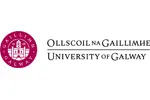We're moving! This site will be relocating to goingto.university in 2026. Please update your bookmarks to the new address.


Ireland
University of Galway| The award | How you will study | Study duration | Course start | Domestic course fees | International course fees |
|---|---|---|---|---|---|
| MSc | Full-time | 1 year | September | - | - |
The Masters in Climate Change, Agriculture and Food Security (MScCCAFS) programme provides motivated students with cutting-edge knowledge and skills in climate change, agriculture, and food security.
?The course is run with the Ryan Institute in partnership with national and international contributors, including the global network of One CGIAR agricultural research institutes.
Our classes are international and multidisciplinary. We accept students from any background who want to combine scientific, engineering, technical, social or policy skills. MScCCAFS students also complete a research project aimed towards a published outcome. Depending on circumstances, these projects may be completed within the University, of Galway, at students place of work, or through a research collaboration or placement.
Our graduates are equipped to address the deepening climate crisis and build mitigation, adaptation and resilience in the agriculture and food sector globally.The MScCCAFS won the Best New Postgraduate Award (HEA Awards, Ireland) for 2017 (more information here) and was shortlisted for the Best Science Award for 2019.
Our graduates aim to be 'Agents of Change' who will deliver significant impacts at scale through their future careers.
Scholarships available
Find out about our Postgraduate Scholarships here. For more information, contact the Course Coordinator.
Save
Save
Applications are made online via the University of Galway's Postgraduate Applications System. Selection is based on the candidate's academic record at an undergraduate level and their passion for the topics of the course. Applications are accepted throughout the year but early application is strongly recommended.
Students with relevant non-academic experience are encouraged to contact the Course Coordinator for information on entry through Recognition of Prior Experiential Learning.
A range of assessment methods are integrated and applied throughout the MScCCAFS.
These include reports, data exercises, group presentations, online literature tests, and analysis of policy case studies. All students prepare receive communications and career training and produce a publication-style Thesis after their MScCCAFS project.
Contact University of Galway to find course entry requirements.
Below are some suggested courses at other providers that you may also be interested in:
Management of Innovation and Sustainable Business Development MSc
NTNU School of International Business
Find out moreIntegrative Health and Social Care - Top Up BSc (Hons)
University of Derby Online Learning
Find out moreGovernance of Migration and Diversity - Sociology Master Degree
Erasmus School of Social and Behavioural Sciences (ESSB), Erasmus University Rotterdam
Find out moreLLM with SQE Preparation LLM, LLM
Centre for Commercial Law Studies, Queen Mary University of London
Find out moreIf you do not meet the entry requirements for this course then consider one of these postgraduate preparation courses from another institution:
Graduate Diploma of Engineering (Industrial Automation)
Engineering Institute of Technology
Find out moreThere are 164 other courses listed from University of Galway. A selection of these are displayed below:
Bachelor and Master of Engineering (Electrical and Electronic) Bachelor
University of Galway
Find out moreBachelor and Master of Engineering (Electronic and Computer) Bachelor
University of Galway
Find out moreJoin the StudyLink email list and never miss a chance to turn your study abroad dreams into reality!

Find out more about studying in Ireland